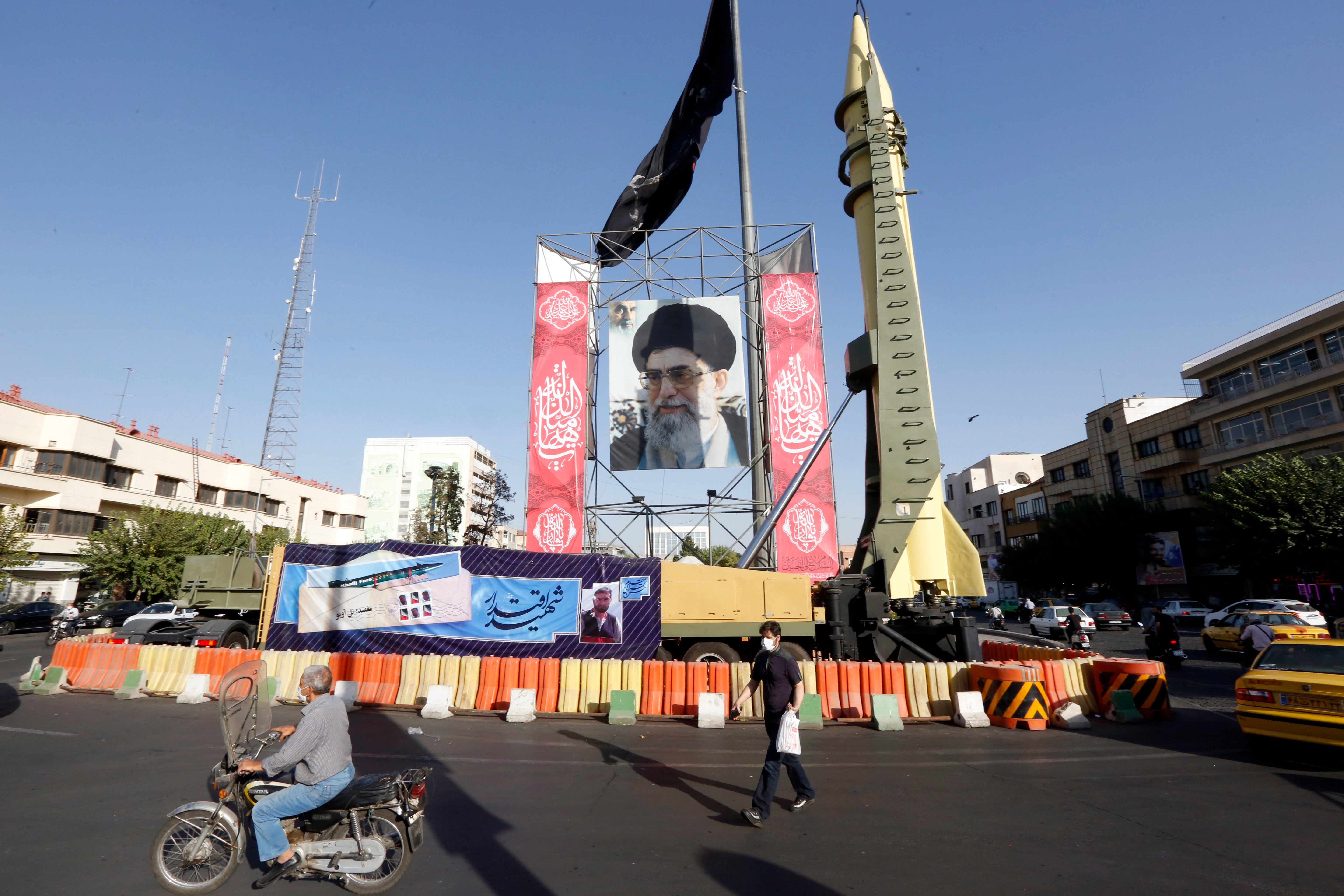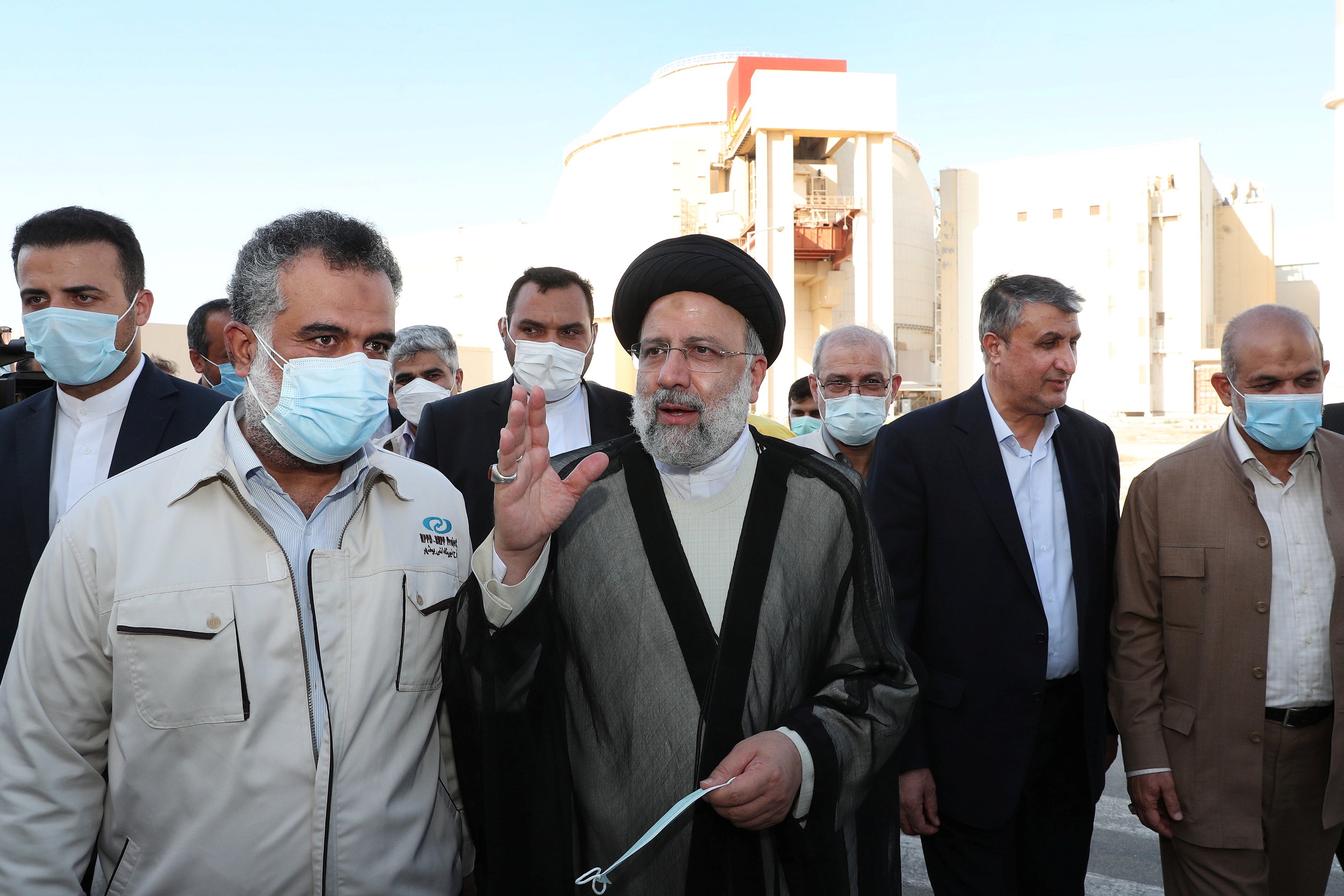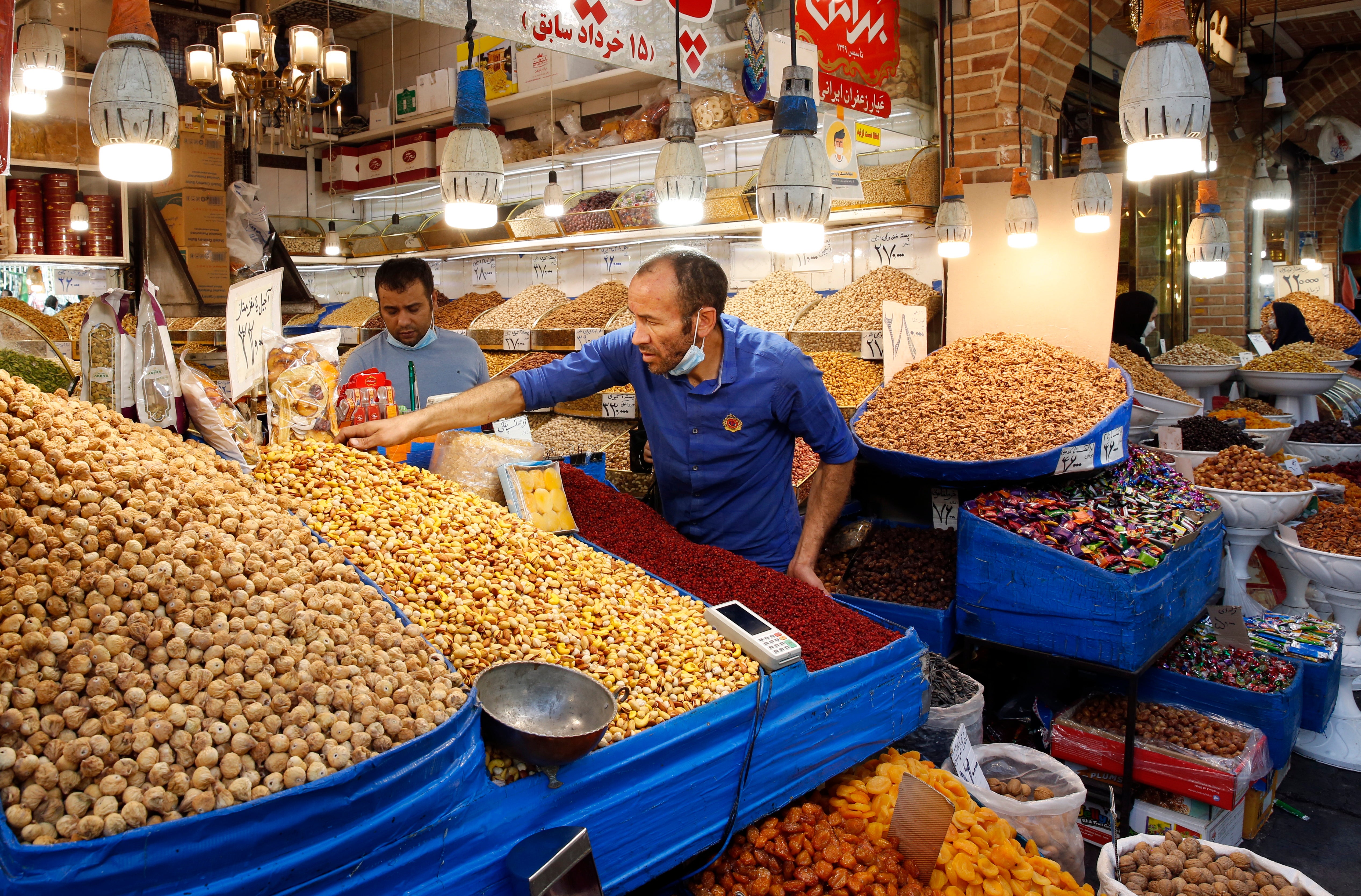‘On life support’: Fears grow that Iran nuclear deal is on verge of collapse
Iran, in little hurry to return to talks, continues to expand its nuclear programme

Your support helps us to tell the story
From reproductive rights to climate change to Big Tech, The Independent is on the ground when the story is developing. Whether it's investigating the financials of Elon Musk's pro-Trump PAC or producing our latest documentary, 'The A Word', which shines a light on the American women fighting for reproductive rights, we know how important it is to parse out the facts from the messaging.
At such a critical moment in US history, we need reporters on the ground. Your donation allows us to keep sending journalists to speak to both sides of the story.
The Independent is trusted by Americans across the entire political spectrum. And unlike many other quality news outlets, we choose not to lock Americans out of our reporting and analysis with paywalls. We believe quality journalism should be available to everyone, paid for by those who can afford it.
Your support makes all the difference.The deal to scale back and rein in Iran’s nuclear programme is in danger of collapse in the face of intransigence by the United States on sanctions relief and ambivalence by a hardline administration in Tehran about the benefits of an agreement it may consider more trouble than it’s worth.
For now, the diplomatic envoys of nations party to the Joint Comprehensive Plan of Action (JCPOA) are scrambling to come up with a formula to resume talks that halted earlier this year. Officials tasked to work on reviving the deal are awaiting any positive signals or moves by Iran, which has been steadily ramping its programme well beyond the limits of the nuclear deal and complicating access for inspectors seeking clarity on its programme.
“The deal is not totally dead, but it’s on life support,” said an official of a government involved in the talks. They spoke on condition of anonymity.
Experts caution that the status quo is unsustainable, and that a collapse of the deal could lead to armed escalation. The United States has accused Iran of dragging its feet, and on Tuesday, State Department spokesman Ned Price told reporters “this is not an exercise that can go on indefinitely.” Israel’s finance minister Avigdor Liberman warned this week that “a confrontation with Iran is only a matter of time, and not a lot of time.”
The JCPOA, the result of more than a dozen years of diplomacy, was working largely as intended until former US president Donald Trump unilaterally pulled out of the agreement in 2018, initiating a campaign of draconian sanctions meant to force Iran back to the negotiating table to hammer out a deal more favourable to Washington and its regional partners.
The scheme, hatched by a narrow clique of Washington political operatives, failed. Iran upped its nuclear programme, refused to engage with Washington, and began stabilising its economy. President Joe Biden vowed to return to the deal upon taking office in January but waited months before addressing Iran. Talks resumed in Vienna, but were waylaid by an Iranian election that brought to power the hardline administration of President Ebrahim Raisi.
Mr Raisi’s team, now in office since early August, says it needs time to settle in, echoing the talking points the Biden administration used to excuse its three-month delay in beginning talks earlier this year. But western officials suspect Iran is dragging its feet to build up leverage by increasing the purity and quantity of its nuclear fuel stockpile.
“If they’re just playing for time while expanding their programme, we’ll have to recalibrate our approach,” said the official involved in Iran talks.
But in large part, Iran’s calculations remain a mystery. Unlike the hardline administration of former president Mahmoud Ahmadinejad, who governed from 2005 to 2013, Mr Raisi is relatively quiet, making few waves internationally and offering few signals about his intentions.
“They are struggling to build a strategy and build consensus,” said Sanam Vakil, an Iran expert at Chatham House. “Their foot-dragging can be seen as a leverage-building exercise, but it’s also a reflection of internal paralysis.”

Indeed, just as Trump abandoned the JCPOA in part to distinguish itself from his predecessor, Barack Obama, who forged it, the Raisi team needs to find a formula to make the nuclear deal its own, and avoid anything that would salvage the legacy of its predecessor, the moderate administration of Hassan Rouhani. The results of a telephone poll conducted by Gallup this week suggests Raisi has widespread support for his policies so far, with more than 70 per cent giving him positive marks.
Experts say Iran may be nervous about Washington’s talk about following up on a return to the JCPOA with negotiations over Iran’s missile programme and support for armed groups in Iraq, Syria, Lebanon and Yemen. The JCPOA, which placed limits on Iran’s nuclear programme in exchange for sanctions relief, has been criticised by Israel, Saudi Arabia and Washington hawks for failing to address Iran’s other actions. If the US opts for using nuclear talks to build pressure for follow-on talks, Iran may calculate that its nuclear advances will give it leverage.
“The sense in Tehran is that they will re-enter talks but that they will drive a harder bargain,” said Ali Ahmadi, a political scientist at Tehran University.
“Iranian nuclear technology advancement puts the US, at least to a small extent, in the same place as Iran in terms of not getting what it bargained for back in 2015,” he said. “That might set up a more-for-more deal possibility later on, or at least level the playing field to some extent when the re-entry agreement is wrapped up.”
Iran has increased its stockpile of enriched uranium to more than 10 times the limit imposed by the JCPOA and begun enriching uranium to 60 per cent purity, far more than the reactor grade five per cent or less permitted by the deal. It has also begun operating advanced centrifuges that produce more nuclear material at a faster rate, while complicating the efforts of inspectors seeking to maintain an eye on the programme under Tehran’s safeguards agreement with the IAEA.
Meanwhile, Trump administration sanctions remain largely in place. Talks in Vienna earlier this year logjammed over Iranian demands that once the sanctions are removed they won’t be resumed, and requests that White House won’t rescind certain sanctions only for Congress to reimpose them.
“What the Iranians want is a written guarantee,” said the official close to the talks. “They want guarantees that changes in the administration won’t bring sanctions back. But that’s not possible in any democratic system.”
Iran says it is ready to resume talks. But in a television interview this week, Mr Raisi said he questioned whether the US was serious about reviving the JCPOA. “A readiness to lift sanctions can be a sign of their seriousness,” he said.
But international officials in recent months have begun to contemplate what it would mean for the JCPOA to collapse altogether. Many wonder whether the US has already sanctioned Iran so much that it lacks any non-military tools. International businesses already largely stay away from Iran.
The sense in Tehran is that they will re-enter talks but that they will drive a harder bargain
Yet Iran’s currency has steadied, and China is believed to be propping up its economy with oil purchases. Iran’s security forces have suppressed several waves of protests over economic troubles.
“It’s hard to imagine European [sanctions] or even snapback of UN sanctions having much of an effect,” said Mr Ahmadi. “The US is trying to get China to stop doing business with Iran but that’s unlikely considering the escalating levels of tension in Sino-American relations. The military threats are there but they’ve been for 20 years.”
As for the threat of an Israeli military attack, that could happen whether or not the JCPOA is resurrected. “Reaching a deal would probably not make such an episode less likely in a meaningful way,” said Mr Ahmadi.
Still, Mr Raisi has promised to reduce inflation and right the economy, and there may be trouble for him on the horizon if he fails. A leaked August 2021 report by Iran’s Planning and Budget Organisation warned the country’s economy could collapse by 2027 if the country does not draw down its debt.

“Their thinking is they can survive whatever is to come because they have survived everything thus far,” said Ms Vakil. “But it’s a dangerous calculation. They’re always strategically on the razor’s edge. The outcome domestically could be dangerous in the long run. Yes, they have the monopoly of violence. Yes, the economy is bandaged, but the poverty level is increasing. Debt is increasing.”
European Union officials, including foreign policy chief Josep Borell and his deputy Enrique Mora, have been actively engaging with Iran in part in an effort to make sure the diplomatic atmosphere does not become so toxic that it would preclude a resumption of talks. International Atomic Energy Agency director-general Rafael Mariano Grossi plans a trip to Tehran in the coming days to convince Iran to give access back to inspectors.
But the mistrust on both sides is building. Iranians are beginning to doubt whether the Biden administration, beset by multiple challenges in Washington and the scars of the traumatic pullout from Afghanistan, is any position to make a deal with Iran that would have questionable political benefits. Western nations are growing suspicious and frustrated over Tehran’s moves.
“If the Iranians really wanted to take their time, why continue to escalate their non-compliance?” said the official involved in talks. “Why not freeze their non-compliance? If they walk away, the options aren’t good. It would be a miscalculation to think everyone would just shrug their shoulders.”




Join our commenting forum
Join thought-provoking conversations, follow other Independent readers and see their replies
Comments